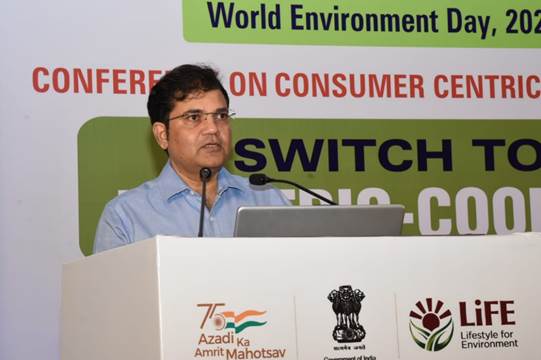05 JUN , Delhi: How can we accelerate the deployment of energy-efficient, clean and affordable e-cooking solutions in India? On World Environment Day today, a conference organized in New Delhi by the Bureau of Energy Efficiency (BEE), Ministry of Power, Government of India, in collaboration with CLASP, sought to find new answers to this question. The “Conference on Consumer-Centric Approaches for E-cooking Transition” brought together institutional consumers, consumer research groups, policy makers, think tanks and manufacturers in a discussion on strategy for the transition to electric cooking.Delivering the special address, Additional Secretary, Ministry of Power, Ajay Tewari said that e-cooking is going to be an environment-friendly habit for all Indians in the times to come. “Some people take it very lightly, but e-cooking has many dimensions for families in urban and rural areas. Given our large population, a change in our behaviour can have the biggest impact on the planet.”Speaking about Mission LiFE launched by the Prime Minister at the 26th UN Climate Change Conference of the Parties (COP26) in Glasgow in 2021, the Additional Secretary said that India has emerged as the leader in energy transition. “We are going to achieve renewable energy targets much earlier than the timelines we announced. This is evident from our achievement of Nationally Determined Contributions nine years ahead of target and our renewable energy targets.”Move towards e-cooking driven by 24/7 ElectricityThe Additional Secretary said that we want to move towards e-cooking since we have 24/7 electricity in our households. “India has, in just 18 months, given Saubhagya connections to 26 million households who did not have electricity access. Never before in the history of the world has so many households been given electricity connection in such a short time. We are supplying energy for 23.5 hours in all urban areas and 23 hours and more in rural areas. It is a big achievement that the age of power cuts is behind us.” He added that 700 million people in the world however still do not have access to electricity and that universal energy access is one of the priorities of G20.
Home Ministry of power On 50th anniversary of World Environment Day, Government holds Conference on Consumer-Centric...


